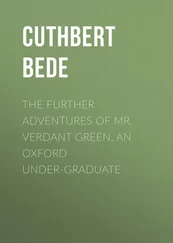The old hands of the law courts, the attorneys and magistrates and so on, know better than anyone how the weather, the time of the year, the character of the presiding judge, his mood that day, the mood of the prosecuting counsel and the jury, the defendant's and his lawyers' fitness-their form-can sometimes influence the scales of justice.
This time the president did not pay me the compliment of asking me to explain my case myself; he was quite satisfied with the monotonous voice of the clerk of the court reading out the indictment.
The twelve bastards who made up the jury had brains as damp and dreary as the weather; you could see that in their moist, dull, haif-witted eyes. They lapped up the baloney of the indictment.
There was absolutely nothing human about the prosecuting counsel.
I felt all this the moment I glanced quickly round the court. And I had sized it up exactly; during the two days the trial lasted they hardly let me speak at all.
And now came the same statements, the same evidence, as in July. No point in going over it in detail; it was the same party beginning all over again with the one difference that, if I felt outraged, and if I sometimes burst out, they shut me up at once.
There was only one really new fact, the appearance of the taxi driver Lellu Fernand, the witness for my alibi, who had not had time to give his evidence before the postponement in July-the only witness the pigs had never been able to find: a myth, according to them.
Yet he was an essential witness for me, because he stated that when he went into the Iris Bar saying "There's just been a shot," _I was there_.
They accused him of being a put-up witness.
Here, on the green bench, thirty-six years later, fury seized hold of me again; I felt neither the cold nor the drizzle that had begun to fall.
Once again I saw the boss of the Iris Bar come into the witness box and state that I could not have been in his place when Lellu came in to say there had been a shot outside, because two weeks before he had forbidden me to enter his bar. That meant I was such a bloody fool that in a job as serious as this, with my freedom and perhaps my life at stake, the alibi I gave involved a place where I was not allowed to go! And his waiter confirmed his evidence. Naturally they forgot to add that permission to stay open until five in the morning was a favor granted by the police, and that if they told the truth their closing time would be brought back to two o'clock. The boss was defending his till and the waiter his tips.
Maître Raymond Hubert did all he could, and so did Maître Beffey-a Maître Beffey so disgusted that he reached the point of open war with Mayzaud, who, in confidential police reports, tried to damage his standing as a lawyer by giving details of sexual matters that had nothing to do with the case.
Now it was the end, I was the last to speak. What could I say? "I'm innocent. I've been framed by the police. That's all."
The jury and the court withdrew. An hour later they returned and I stood up while they went back to their places. Then in his turn the president rose: he was about to read the sentence. "Prisoner at the bar, stand up."
And so firmly did I believe I was in the court, there under the trees in the Boulevard de Clichy, that I jumped to my feet, forgetting that my legs were pinned against the back of the bench, which made me fall back on my ass.
So it was sitting, not standing as I ought to have been, that there under the boulevard trees in 1967, I heard the toneless voice of the president who, in October, 1931, pronounced this sentence: "You are condemned to penal servitude for life. Guards, take the prisoner away."
I was just about to hold out my hands; but there was no one to put on the handcuffs; there were no _Gardes républicains_ beside me. There was no one except a poor old woman curled up at the far end of the bench, with newspapers on her head to protect her from the cold and the rain.
I untwisted my legs. Standing at last, I let them get over their stiffness and then, lifting the papers, I put a hundred-franc note into the hands of this old woman, sentenced to extreme poverty for life. For me, "life" had hasted only fourteen years.
And still keeping under the trees in the middle of the Boulevard de Clichy, I walked along to Place Blanche, pursued by the last image of that trial-myself standing to receive the unbelievable blow that wiped me out of Montmartre, my Montmartre, for nearly forty years.
I had scarcely reached that wonderful square before the magic lantern went out, and all I saw were a few bums sitting there at the exit from the Metro, squatting with their heads on their knees, asleep.
Quickly I hooked round for a cab. There was nothing here to attract me, neither the shadow of the trees that hid the glare of artificial light nor the brilliance of the square, with its Moulin Rouge blazing away for all it was worth. One reminded me too much of my past, and the other proclaimed, "You don't belong here anymore." Everything, yes, everything had changed; get out quick if you don't want to see that the memories of your twenties are dead and buried.
"Hey! Taxi! Gare de Lyon, please."
In the suburban train that took me back to my nephew's, I recalled all the newspaper articles that Maître Raymond Hubert had given me to read after my conviction. Not one of them could avoid speaking of the doubt that had hung over the whole case; _Le Journal_ gave it the headline "A Dubious Case."
I hooked up these papers later.
An article from _L'Humanite_ of October 28 deserves to be quoted at length.
CHARRIERE-PAPILLON CONDEMNED TO PENAL SERVITUDE
FOR LIFE
In spite of the persisting doubt as to the identity of the real Papillon, the jury of the Seine convicted Charrière of being the Papillon who is said to have killed Roland Lepetit on the Butte one night in March.
At the beginning of yesterday's hearing, the witness Goldstein, upon whose statements the whole charge rests, gave evidence. This witness, who remained in continual contact with the police and whom Inspector Mayzaud said he had seen more than a hundred times since the tragedy, made his statements on three separate occasions, each deposition being more serious than the last. It is clear that this witness is a loyal helper of the criminal police.
While the witness was uttering his accusations, Charrière listened closely. When Goldstein had finished, Charrière cried, "I don't understand, I don't understand this Goldstein: I have never done him any harm, and yet he comes here and pours out lies whose only aim is to get me sent to penal servitude."
Inspector Mayzaud was recalled. This time he claimed that Goldstein's evidence was spontaneous. But skeptical smiles were seen in court.
For the prosecution Siramy made a rambling closing speech in which he observed that there were several Papilions in Montmartre and even elsewhere. Nevertheless he asked for a conviction, though without being exact as to the sentence, which he left to the jury.
Maitre Gautrat, representing the family, comically held up penal servitude as a school of "moral betterment" and then asked that Charrière should be sent there for his own good, so as to be made an "honest man."
The counsels for the defense, Maitres Befley and Raymond Hubert, pleaded innocence. It did not follow that since Corsican Roger, otherwise Papillon, could not be found, Charrière, otherwise Papillon, was therefore guilty.
But after a long retirement the jury came back, bringing in the verdict of guilty, and the court sentenced Henri Charrière to penal servitude for life, awarding the family one franc damages.
For years and years I have asked myself this question: why did the police go all Out to screw a little crook who they _themselves_ said was one of their best helpers? I have found a single answer, the only logical one: they were covering up for someone else, and this someone else was a _genuine informer_.
Читать дальше
Конец ознакомительного отрывка
Купить книгу











